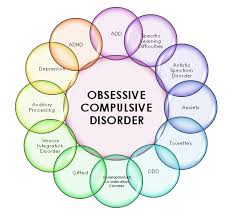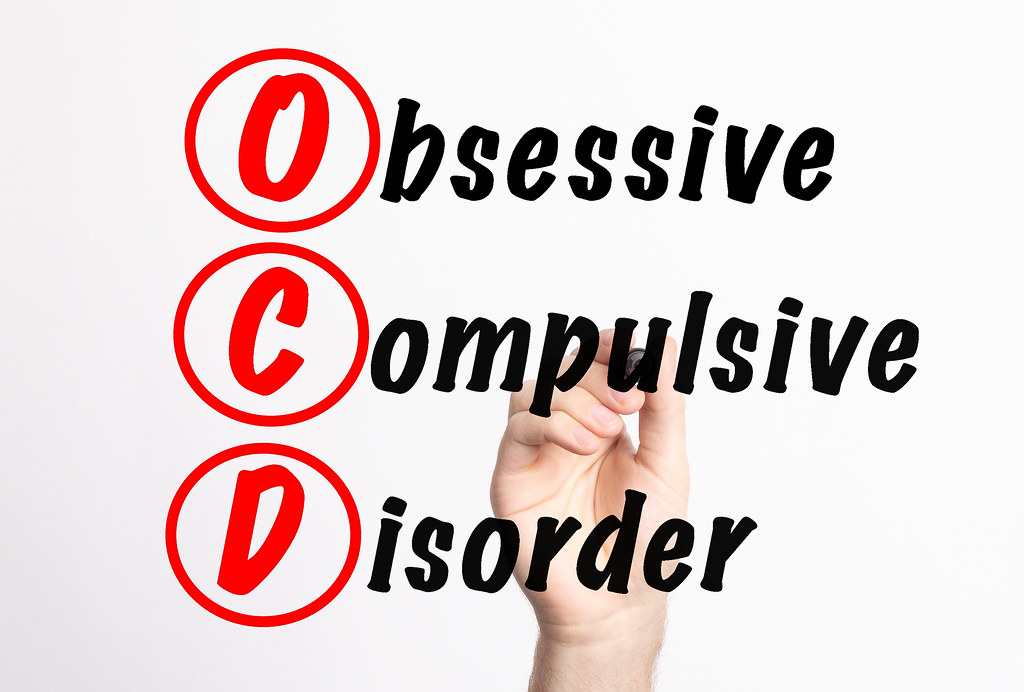If you are one of the millions of people who suffer from OCD, then you know that it can be a debilitating condition. The good news is that there are effective treatments available. In this blog post, we will discuss the most common treatment methods for extreme OCD. We will also provide tips for finding the right treatment provider for you.
Contents
What is Extreme OCD Treatment?
 Extreme OCD treatment is a form of intensive therapy, typically lasting from two to four weeks, that focuses on helping individuals with Obsessive Compulsive Disorder (OCD) make major improvements in their symptoms and functioning.
Extreme OCD treatment is a form of intensive therapy, typically lasting from two to four weeks, that focuses on helping individuals with Obsessive Compulsive Disorder (OCD) make major improvements in their symptoms and functioning.
It involves using therapies such as Cognitive Behavioral Therapy (CBT), Exposure and Response Prevention (ERP), Acceptance and Commitment Therapy (ACT), and Dialectical Behavior Therapy (DBT).
During extreme treatment, therapeutic sessions are usually held several times a day for a period of two to four weeks. The focus is on providing intensive treatment that rapidly reduces symptoms so that individuals can more effectively manage their OCD in the future.
Extreme treatment involves an intense focus on the individual’s fear structure, and the unique pattern of thought and emotion that drive obsessive-compulsive behavior. This allows therapists to customize treatment plans and target obsessions and compulsions more effectively. During the intensive treatment period, therapists work with individuals to identify and understand their fear structure and develop strategies for reducing the power of obsessive-compulsive behavior in their lives.
Overall, extreme OCD treatment is a highly effective form of therapy that can help individuals make major improvements in their lives. It can lead to dramatic reductions in symptoms, better functioning in daily life, and improved quality of life. With the help of an experienced mental health professional, individuals with OCD can gain insight into their fear structure and learn new strategies for managing their symptoms.
What Are The Most Common Treatment Methods For Extreme OCD?
There are various common methods that are used for extreme OCD:
Cognitive Behavioral Therapy (CBT)
This therapy focuses on changing the thinking patterns and behavior of the patient with OCD. CBT helps to recognize irrational thoughts and then redirect them into more positive, healthy responses. The therapist will work to help identify problematic behaviors and then create a plan for the patient to address them in order to reduce the intensity of compulsions and obsessions.
Exposure and Response Prevention (ERP)
This form of therapy focuses on exposing the individual to triggers that cause their OCD symptoms and then teaching them how to manage their responses without engaging in compulsive behaviors or rituals. The therapist will use a variety of methods including role-playing, systematic desensitization, and gradual exposures to help the patient gain better control of their symptoms.
Medication
In some cases, medication is used in conjunction with CBT or ERP to help reduce the intensity of OCD symptoms. Selective serotonin reuptake inhibitors (SSRIs) are commonly prescribed for patients with extreme OCD. These medications help to balance the levels of serotonin, a neurotransmitter in the brain, which can help reduce symptoms such as intrusive thoughts and compulsive behaviors.
Relaxation Techniques
Relaxation techniques such as meditation, deep breathing exercises, yoga, and progressive muscle relaxation can be used to help reduce anxiety associated with OCD. These methods have been proven to be effective in reducing the intensity of symptoms, as well as helping individuals manage intrusive thoughts.
Support Groups
Joining a support group can also be beneficial for people with extreme OCD. Connecting with other individuals who are struggling with similar issues can provide comfort and understanding while providing helpful coping strategies and advice from those who have been through the same experience.
No matter what treatment option is used, it is important to remember that extreme OCD can be effectively managed with the help of a qualified mental health professional. With the right tools and support, individuals with OCD can work towards leading more content and healthier lives.
Can Severe OCD Be Cured?
The answer to the question of whether severe OCD can be cured is complex. While it is true that extreme OCD treatment can lead to major improvements in symptoms, a full cure is not always possible. The research shows that while intensive treatment can be highly effective in reducing symptoms, there is no guarantee that individuals will not relapse or experience periods of heightened anxiety and intrusive thoughts.
It is important to note that recovery from severe OCD can take time and dedication, but it is possible. With proper treatment and support, individuals can learn to manage their symptoms and lead fulfilling lives. It is also important to remember that everyone’s experience with OCD is unique. Some individuals may need more intensive treatment than others to find relief from their symptoms. If you or someone you know is struggling with severe OCD, it is important to seek professional help as soon as possible.
What Happens In Extreme Cases of OCD?
In extreme cases of OCD, people may become overwhelmed with their thoughts and compulsions.
Resulting in severe disruption to their daily lives. These individuals may spend hours daily engaging in rituals such as counting or checking things multiple times, or excessively washing their hands until they become raw and chapped. They may also have intrusive thoughts that cause them great distress and interfere with their ability to focus on other tasks. In extreme cases, people may become so focused on the rituals that they are unable to leave their homes, perform basic self-care activities, or create meaningful social relationships.
If left untreated, these symptoms can lead to depression and anxiety. As well as serious physical health issues. It is important to seek help from a qualified mental health professional. If you or someone you know is experiencing extreme symptoms of OCD. With the right treatment, those with OCD can learn to manage their thoughts and behaviors, allowing them to build healthier relationships and live fuller lives.
Can You Live a Normal life With Severe OCD?
Yes, people can live normal life with severe OCD. While it may be difficult for some to manage their symptoms and make progress in treatment, many individuals are able to achieve success in managing their disorder.
- With proper support and guidance, those living with OCD can build the skills necessary to cope with their condition and lead productive lives.
- A combination of medication, cognitive-behavioral therapy (CBT), exposure and response prevention (ERP) therapy, supportive counseling, and other forms of mental health treatment can help individuals manage their symptoms.
- It is also important to include self-care practices such as relaxation techniques, meditation, regular exercise, healthy diet choices, and getting plenty of restorative sleep. With the right care and treatment, individuals living with severe OCD can live healthy, productive lives.
- It is also important to develop a strong support system and find peers who understand what you are going through. Having a support system of friends and family who understand your condition can make it easier to manage the symptoms of OCD.
- Additionally, joining an OCD support group can provide a safe and non-judgmental space to discuss the challenges of living with severe OCD. By connecting with others who are facing similar struggles, you may find increased motivation to move forward in your recovery journey.
- Living with OCD does not have to prevent you from leading a normal life. With the right treatment and support, you can manage your symptoms and work towards a more fulfilling life.
If you or someone you love is struggling with OCD, seek professional help right away. A mental health professional can provide the necessary treatment and guidance to help individuals take control of their disorder and live a normal life despite their condition.
Can OCD Be Cured By Surgery?
No, OCD cannot be cured by surgery. While some medical treatments may help to reduce symptoms of OCD, they are not a permanent solution and will not cure the disorder. It is important to note that there is still much research that needs to be conducted in order to understand the causes and potential treatments for OCD.
Tips
There are tips for providing the right treatment provider for OCD:
1. Research different providers and make sure they have experience treating this disorder.
2. Ask about the type of treatment a provider offers and whether it is evidence-based or not.
3. Talk to a friend, family member, or other professionals who can provide insight into individual therapists’ abilities.
4. Make sure the provider is licensed and accredited to practice in your area.
5. Ask for specialized referrals or recommendations from other mental health professionals, such as psychiatrists or psychologists who have experience treating OCD.
6. Consider asking a potential therapist question about their approach to treatment, their beliefs on recovery, and how they will help you to manage your OCD.
7. Be aware of the potential for discrimination against those with mental health conditions, and ensure that a provider accepts and understands your particular needs.
8. Understand that recovery from OCD can take time, so be patient and realistic about expectations for treatment outcomes.
9. Find out if the treatment center offers financial assistance or sliding scale fees to make therapy more affordable.
10. Know that there is no one-size-fits-all approach to treating OCD, and be willing to work with your therapist and adjust your treatment plan as needed.
11. Finally, remember that you are the best advocate for yourself when it comes to managing your OCD. Take ownership of your recovery and be proactive in pursuing treatment options that make sense for you.
Conclusion
It may be concluded that OCD Extreme treatment is an effective way to treat OCD symptoms and can be used in combination with other treatments such as cognitive-behavioral therapy and medications. It is important to keep in mind that OCD Extreme treatment is not a “cure” for OCD, but rather it helps individuals manage their symptoms more effectively. Additionally, it may help those who feel stuck in their current treatments to gain an understanding of how their symptoms are maintained and to develop new ways of responding to them. Thus, OCD Extreme treatment can be a powerful tool for those struggling with OCD. Psychotherapy is the cornerstone of extreme OCD treatment and provides an opportunity for sufferers to gain insight into their condition and learn how to manage it
Although the research on OCD Extreme treatment is still in its infancy, there is evidence that it may be effective in individuals reducing their symptoms of OCD. Therefore, it is important for individuals to discuss this treatment option with their doctor or mental health professional to determine if it is an appropriate treatment for them. With proper guidance and support, OCD Extreme treatment can be an effective way to reduce symptoms of OCD and improve the overall quality of life.
For more information and guidance, please contact OCDMantra. OCD is a mental health disorder characterized by obsessions and compulsions. If you have any queries regarding OCD treatment, ERP therapy experienced therapists at OCDMantra can help: Book a trial OCD therapy session


